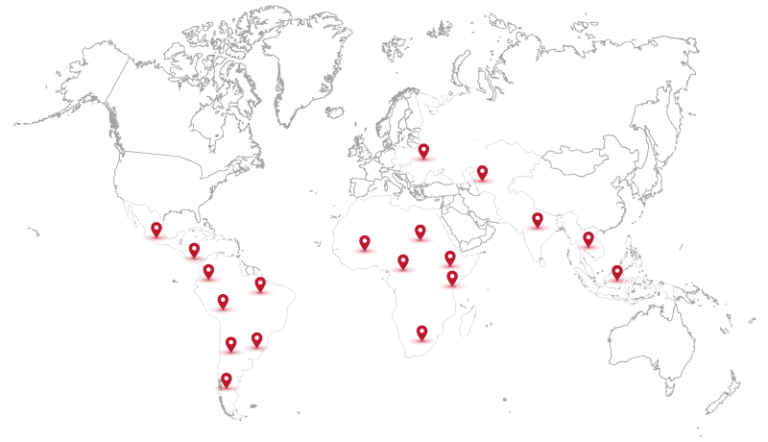On International Workers’ Day, as HomeNet International, we collectively demand:
We, home-based worker members of affiliates of HomeNet International (HNI) came together on
30th April 2021 to commemorate International Workers’ Day, along with emerging affiliates and
our allies and sister organizations. We were around 140 participants representing home-based
workers from 36 affiliates from 20 countries. We came together to highlight our struggles and
demands more than one year into the pandemic.
We learned that many of us have lost our comrades and family members and are still grieving. It
has been more than one year since we first heard of Covid-19 and in this one-year we have lost our
loved ones, food security, work, income and savings. We are faced with no work orders, no
markets in which to sell our products, no social protection, no support from the government or
employers, poor or no healthcare and no signs of economic recovery. Many of us are suffering
from depression, stress, hypertension and even increased domestic violence. Our unpaid care work
has grown, children are dropping out of schools and there is still no sign of vaccines for us, or the
end of this pandemic. Despite all our struggles, we have come together as workers to build
solidarity and voice our common demands. In the words of our sister, Patricia Coñomán from Chile,
“home-based workers are capable of rising up and only united will we make our demands visible.”
We are a diverse group, who are shaped by different economic, political and social structures and
cultural norms. However, we feel we are more alike than different. We are impacted by Covid-19
just like everybody else around the world, but we are more vulnerable as we are not recognized as
workers and we are marginalized due to our class, gender, race, colour and caste. Across the
world, as home-based workers we face the same issues and have the same demands.
On International Workers’ Day, as HomeNet International, we collectively demand:
- Home-based Workers be Recognized as Workers: We work, we produce goods, we provide services, and we contribute to our family incomes and to national and global economies. We want to be heard and seen. We want policies and laws for home-based workers and we demand to be included in decision-making processes that affect us.
- Work and Income: We want work and an income to feed our families and ourselves. We want consistent work orders, cheaper raw material and access to markets. We want piece rates to match living wages. And, we want to be included in new forms of work. We want skills trainings accompanied by working capital to make products that we can continue to sell during the pandemic.
- Emergency Support for Home-Based Workers: The pandemic is not yet over and we are constantly battling with different waves of Covid-19. We are in a continuous state of emergency where we don’t have income to even feed our families. We demand free food for home-based workers and our families till the end of the pandemic. We demand an emergency fund for home-based workers, cash grants and no interest loans to support the livelihoods of home-based workers.
- Social Protection for Home-Based Workers: Social protection is not only a worker right, but also a human right. We demand that home-based workers are immediately included in country social protection schemes and programmes. We demand the universalization of social protection and healthcare. Additionally, we demand that a basic income for home-based workers is implemented.
- COVID-19 Protection and Treatment: We demand access to personal protective equipment (PPE), sanitizers and cleaning products to help us prevent the spread of Covid-10. We also demand that hospital beds, oxygen and ventilators at government hospitals are available for us, and that we have quick access to free vaccinations.
- Digital Access for Home-Based Workers and their Children: The pandemic and the lockdowns have pushed us to our own corners. Now we use mobile phones and internet to reach out to each other and organize as workers. Our children need mobile phones/ computers to attend to on-line school. We demand access to free or affordable digital devices and data packs for us to organize as workers and for our children to access education.
Solidarity for Ever!
HomeNet International




